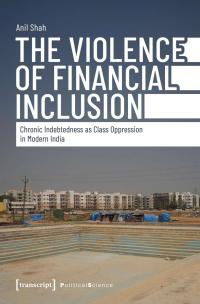Shah, Shah (2025): The Violence of Financial Inclusion. Chronic Indebtedness as Class Oppression in Modern India. Bielefeld: transcript.
Financial inclusion appears as a timely development policy. Ostensibly, providing poor households with access to credit and other financial services contributes to sustainable development and poverty alleviation. Anil Shah reveals the colonial roots of microfinance and how these paved the way for its rise in the present. Drawing on empirical field research, he demonstrates how financial inclusion is the latest incarnation of a class-based mode of dominating and exploiting subaltern classes on the Indian subcontinent through gendered and racialised indebtedness. As such, he offers a vital resource for researchers, students, and policymakers working in the field of development finance.
Auszeichnung
Promotionspreis des Kasseler Internationalen Graduiertenzentrums Gesellschaftswissenschaften (KIGG) 2024
Critic's Reviews
»This pathbreaking analysis unpacks development in India through the lens of household financing of subaltern classes. It intertwines concepts from Marxism, feminist social reproduction theory and racial capitalism to show the ordinary, everyday violence of access to credit. Moreover, it demonstrates how debt struggles are a form of class struggle which can challenge oppressive regimes of chronic indebtedness.« (Dr. Christa Wichterich, author of Who cares? Care Extraction and the Struggles of Indian Health Workers)
»This is the kind of important work that takes the suggestiveness of the framework of racial capitalism and stretches it to meet the urgent questions of the present. Admirably interdisciplinary, this is a book that will help us comprehend the lived impacts of financial instruments for decades to come.« (Prof. Dr. Gargi Bhattacharyya, author of »Rethinking Racial Capitalism: Questions of Reproduction and Survival«)

